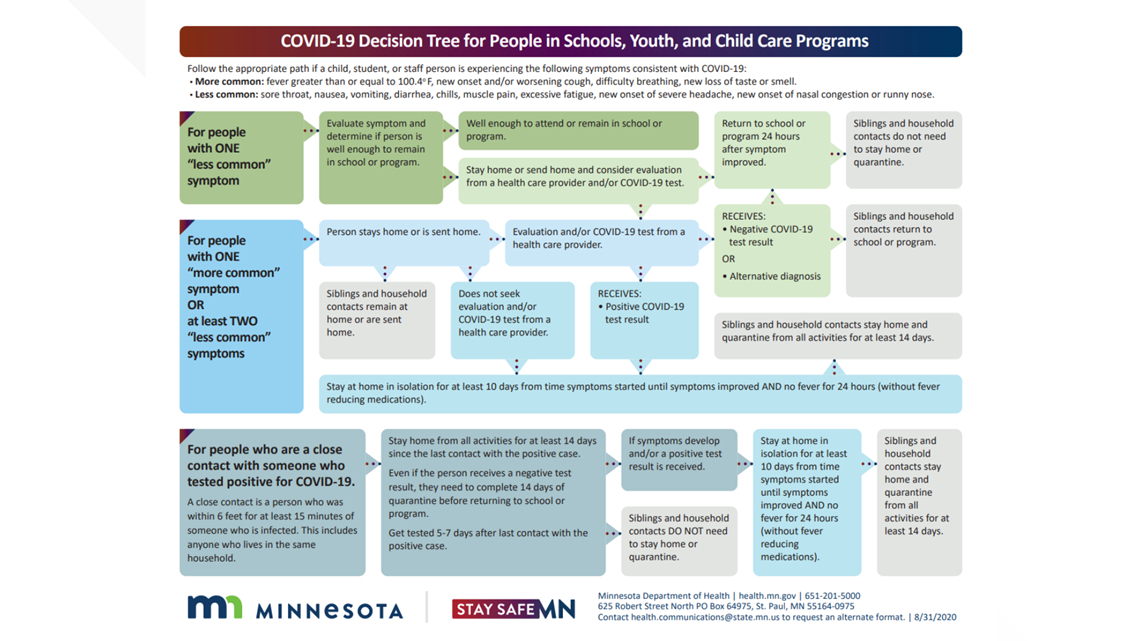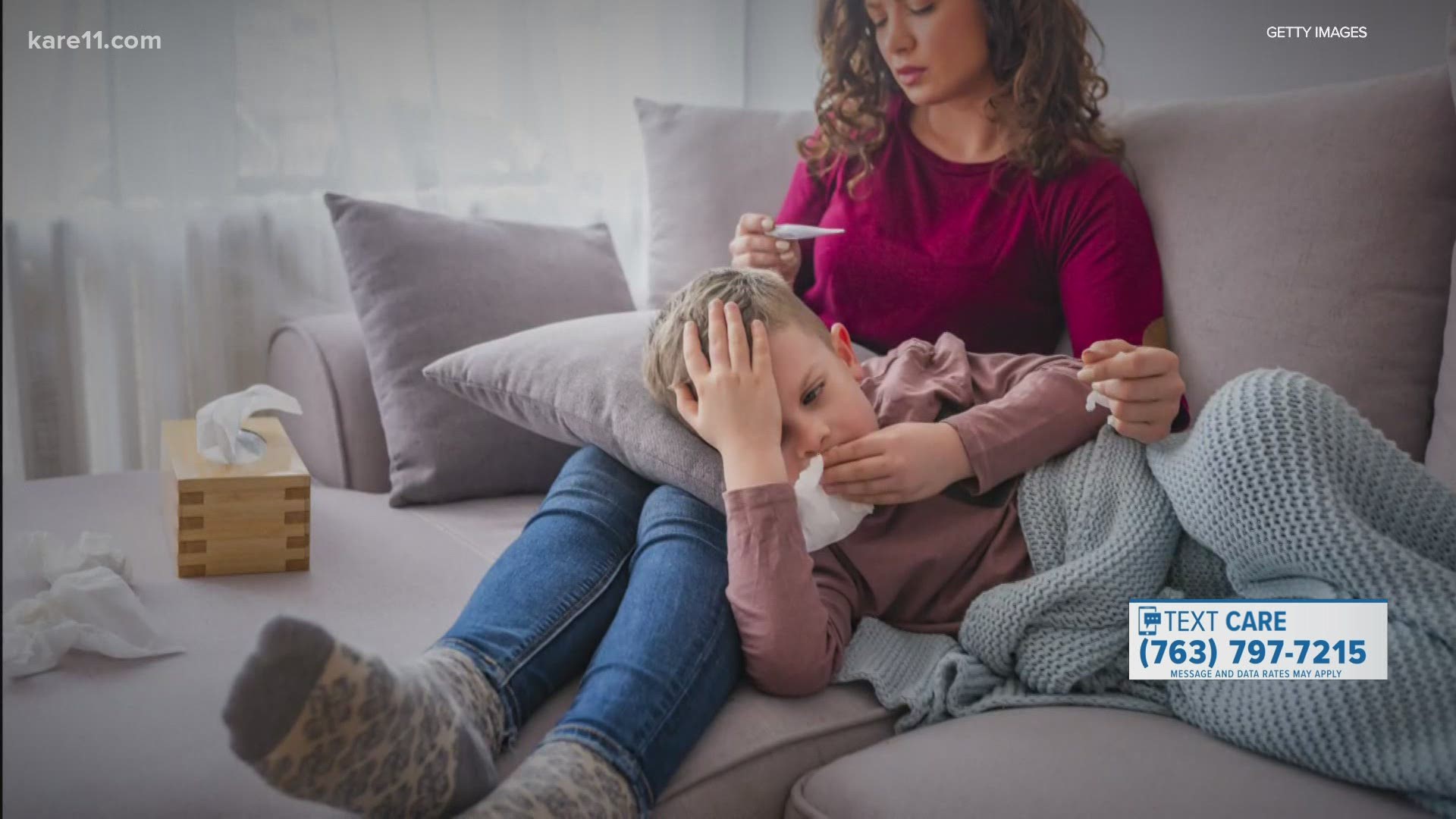HOPKINS, Minn. — Moriah Sunde’s three kids started an in-person hybrid model at Alice Smith Elementary School in Hopkins this month, giving them the opportunity to return to a school building for the first time since March.
It’s a good feeling for the family.
“They have planned so hard, and so well,” Sunde said after picking them up Monday afternoon. “I’ve just been really impressed.”
As the 2020-21 school year progresses, however, Sunde knows that parents will face some challenges during the age of COVID-19.
Perhaps the most pressing question: How should parents handle sick calls this year for their kids?
“In the past if they had a dry throat or something, or didn’t really show any symptoms at all, we were a little more lenient on sending them. But, now, it’s like, the littlest thing you want to be safe and keep them home,” Sunde said. “And it’s navigating, oh, even if one kid is sick, does that mean we should all be staying home? It’s a lot different this year.”
To help parents with these decisions, the Minnesota Department of Health worked with the Minnesota Medical Association and the local chapter of the American Academy of Pediatrics to create guidelines for sick kids. The guidance, first published at the end of August, was partially the focus of a media call with top health experts on Monday afternoon.
Dr. Andrea Singh, the pediatrics chair at Park Nicollet, urged parents to use extra caution.
“Typical cold symptoms are not typical cold symptoms this season. It is certainly possible they could be COVID,” Singh said. “And, so, we are going to have to adjust.”
The guidelines for parents follow a “decision tree,” helping them prepare for numerous scenarios. If a child exhibits a “less common” symptom not always associated with COVID-19 cases, such as vomiting, a sore throat or nausea, parents should make an evaluation and possibly bring their child home from school. If they do, the child can return to school 24 hours after the symptoms subside, but there’s no recommendation to keep siblings home in these instances.


If a child has at least two of these “less common symptoms” or a “more common” symptom of COVID-19, such as fever of at least 100.4, cough, difficulty breathing, or loss of taste or smell, the child should be sent home along with any siblings from the household. If the child tests positive for COVID-19, they should quarantine for at least 10 days since the start of the symptoms until they’re gone – and until a fever has been gone for 24 hours. Siblings should quarantine for 14 days since last contact with the child who tested positive. If the child tests negative for COVID-19 or gets an alternate diagnosis to explain the symptoms, they can return to school 24 hours after those symptoms go away.
The health department has also stressed that anybody, including a child, should quarantine for 14 days after coming into close contact with a positive COVID-19 case, even if this person with “close contact” tests negative for the virus.
Understandably, this type of caution could present issues for working parents that cannot always afford to take time off for their kids’ sick calls. Dan Bittman, the superintendent of the state’s eighth largest district, ISD 728 in the Northwest Metro, said he’ll preach flexibility this year.
“We want to give grace, understanding we’re in an international pandemic,” Bittman said. “And that may include childcare, or additional food, or a different way to look at education and receive programming.”
Back in Hopkins, Jessica St. Germain said after school on Monday that she’s going to be careful this year with her kids at Alice Smith Elementary, including temperature checks and monitoring her son’s allergies to make sure it’s not something worse.
“Look, I don’t want to be the family that is the outbreak of the school,” she said. “You don’t want to bring in any sickness.”
You can find MDH's resources for families here.

